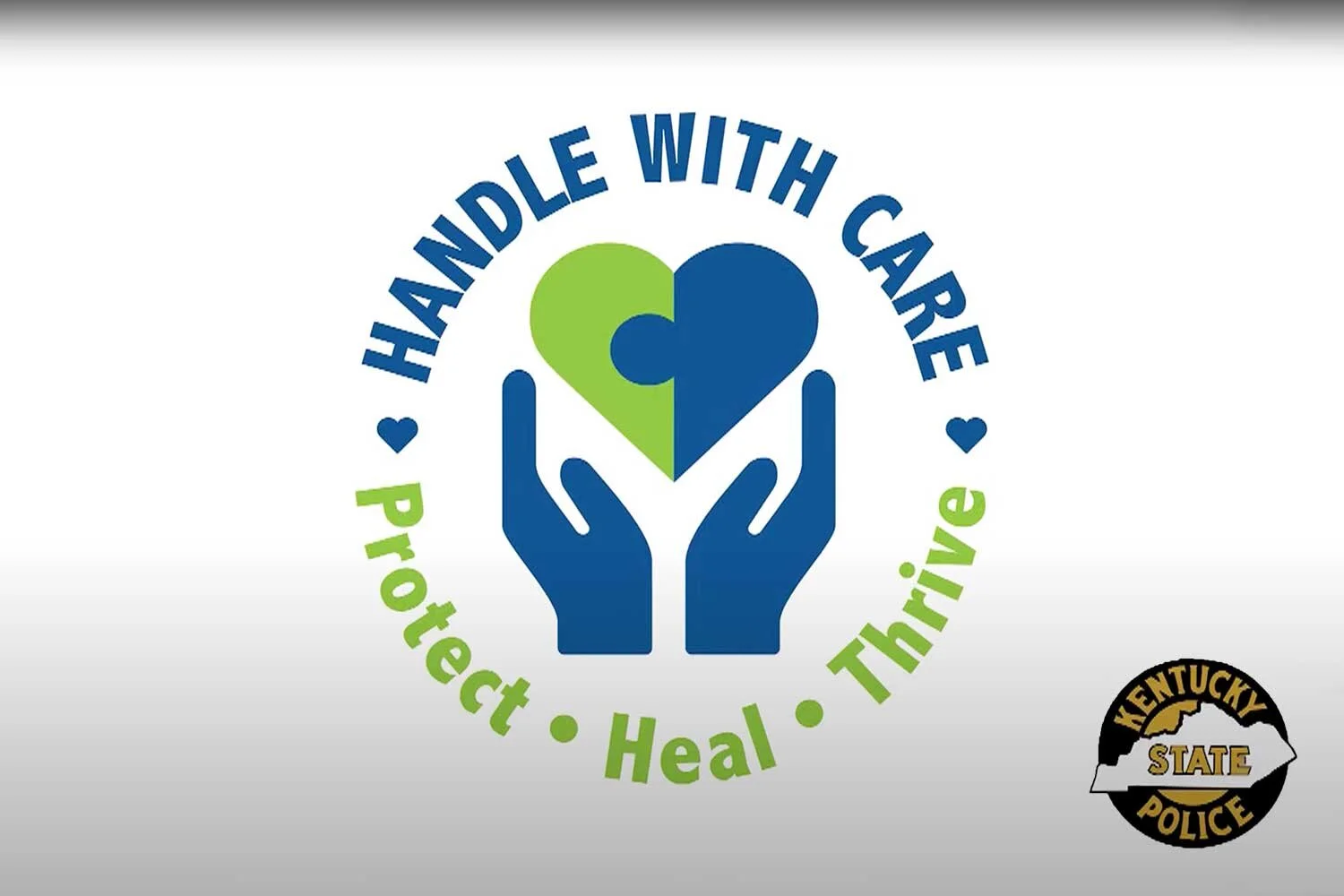Handle with Care Receives Passing Grade
One year into Handle with Care (HWC), law enforcement and school administrators have given the program a passing grade.
“It has been well-received,” Kentucky School Security Marshal Ben Wilcox said. “The school districts that are aware of it are excited about getting it going. No one thinks it’s a bad idea. Everyone thinks it’s fantastic, and we’re getting a large buy-in with it.”
Kentucky School Security Marshal Ben Wilcox (Photo by Jim Robertson)
HWC is a program designed to help school-aged children exposed to trauma. It was introduced into Kentucky’s law enforcement and school districts in fall 2019.
West Virginia launched the nation’s first HWC program in 2013 because officials saw the effect that the opioid crisis, poverty, neonatal abstinence syndrome and transience were having on students. Since its inception, several states have adopted the program, including Kentucky.
Since launching Kentucky’s program, Wilcox said a great effort had been made to educate law enforcement and school systems on the many benefits HWC has to offer.
The program’s biggest hurdle has been the pandemic, as Kentucky’s schools shut down for the second half of the 2019-2020 spring quarter and through the early part of the 2020-2021 school year.
Despite the shutdown, Wilcox said it is imperative that law enforcement continues to make HWC notifications.
“The pandemic has not caused us to make any adjustments to the program,” Wilcox explained. “The biggest thing we need to get out to law enforcement and school administrators is the system is still being used, even during these virtual times. Law enforcement may think that school is out, and they don’t need to do the Handle with Care. That is exactly the opposite of what needs to happen.
“Schools don’t have a connection with the kids every day (now), and officers who assist on a call are another connection schools can have with those kids,” Wilcox continued. “So, we’re advocating for the officers to keep reporting.”
The Kentucky State Police is responsible for collecting numbers of HWC notifications through the Kentucky Open Portal System (KYOPS), said KSP Sgt. Billy Gregory.
KSP Sgt. Billy Gregory (Photo provided)
“KYOPS serves as a portal into the state repository for traffic collision and crimes, citations that have been completed by law enforcement agencies in Kentucky,” Gregory said.
Between August 2019 and August 2020, law enforcement agencies across Kentucky logged in 122 HWC notifications, according to Gregory.
However, that number is skewed because not every law enforcement agency and the school system has subscribed to KYOPS, Wilcox said.
In Madison County, between August 2019 and February 2020, there were 98 notifications alone, according to the school system.
“KSP tracks statewide numbers of agencies that have signed up with them,” Wilcox explained. “The numbers are low because school is not in session, and COVID took center stage as this program was being released. Madison County’s numbers are high because they have been using HWC since last year. Their numbers are from the Madison County System and are not connected to KSP’s database. The numbers from Madison County would show how effective the program can be when well-advertised within a community.”
Gregory said his office was in the process of sending memos to all law enforcement agencies to remind them of that fact. Additionally, school systems must also sign up. Gregory said a high percentage of public school systems are signed up, and letters were sent out to the many private schools throughout the state, to make them aware of the program’s benefits, which are many.
“It can be used as early indicators or early intervention for a child who has behavior problems and other concerns when school comes back into full session,” Gregory said. “School officials can look up past incidents to see if police responded to a child’s home over the summer. That may explain why the child is acting out.”
Madison County assistant superintendent Randy Neely agreed.
Madison County assistant superintendent Randy Neely (Photo provided)
“(HWC) is one of the better decisions the board has ever made for the safety and security of our entire student body,” Neely said. “Our schools and their staff are kept abreast of all the situations that we deem necessary for a positive start to a child’s day.”
HWC is another tool accessible by law enforcement and school systems, and why not use every available resource, Gregory stressed.
“If you head (trouble) off at the pass with this notification and understand why a kid is acting out, it might eliminate some of the guesswork,” Gregory said. “Schools, both public and private, need to know this tool is available. If we have a resource like this to help children, why not use it? We want to encourage our educators and administrators to lean into these types of resources.”








